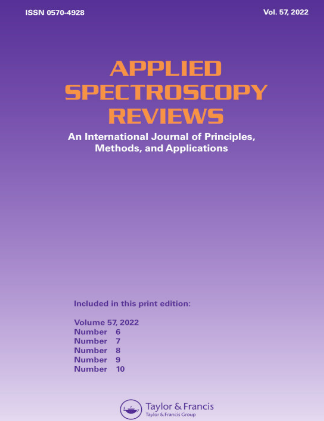室内颗粒物化学特性的先进仪器方法
IF 5.4
2区 化学
Q1 INSTRUMENTS & INSTRUMENTATION
引用次数: 12
摘要
摘要:颗粒物(PM)是影响室内空气质量的重要因素,也是公共卫生领域关注的热点。破译室内可吸入颗粒物的复杂化学成分对于了解颗粒物成分与一系列不利健康影响之间的关系至关重要。在过去的几十年里,先进的分析仪器已经生产出来,能够提供关于室内PM化学特征的不同水平的信息。本文综述了这些复杂的分析技术中最有前途的,可用于鉴定室内PM的有机和无机成分,包括(高分辨率)质谱,有机,碳质和离子分析技术,元素分析技术,如原子光谱法和基于x射线的方法,以及表面分析技术。在在线和离线仪器之间进行了区分,重点关注它们的功能以及它们目前如何在PM组件的目标和非目标分析中使用。这篇综述的目的是为室内空气化学社区提供对今天可用的不同技术的见解,以便它们可以在未来的研究中得到有利的利用。本文章由计算机程序翻译,如有差异,请以英文原文为准。
Advanced instrumental approaches for chemical characterization of indoor particulate matter
Abstract Particulate matter (PM) is an important player of indoor air quality and a topic of great interest in terms of public health. Deciphering the complex chemical composition of indoor PM is critical to understand the association between particles components and a wide range of adverse health effects. Over the last decades, advanced analytical instrumentation has been produced capable of providing various levels of information on the chemical features of indoor PM. This article reviews the most promising of these sophisticated analytical techniques that could be employed in the identification of organic and inorganic constituents of indoor PM, including (high-resolution) mass spectrometry, organic, carbonaceous and ions analytical techniques, elemental analysis techniques such as atomic spectrometry and X-ray based methods, and surface analysis techniques. A distinction is made between online and offline instrumentation, focusing on their capabilities and how they are currently being used in the targeted and untargeted analysis of PM components. This review aims to provide the indoor air chemistry community with insights into the power of the different techniques available today, so that they can be used advantageously in future studies.
求助全文
通过发布文献求助,成功后即可免费获取论文全文。
去求助
来源期刊

Applied Spectroscopy Reviews
工程技术-光谱学
CiteScore
13.80
自引率
1.60%
发文量
23
审稿时长
1 months
期刊介绍:
Applied Spectroscopy Reviews provides the latest information on the principles, methods, and applications of all the diverse branches of spectroscopy, from X-ray, infrared, Raman, atomic absorption, and ESR to microwave, mass, NQR, NMR, and ICP. This international, single-source journal presents discussions that relate physical concepts to chemical applications for chemists, physicists, and other scientists using spectroscopic techniques.
 求助内容:
求助内容: 应助结果提醒方式:
应助结果提醒方式:


